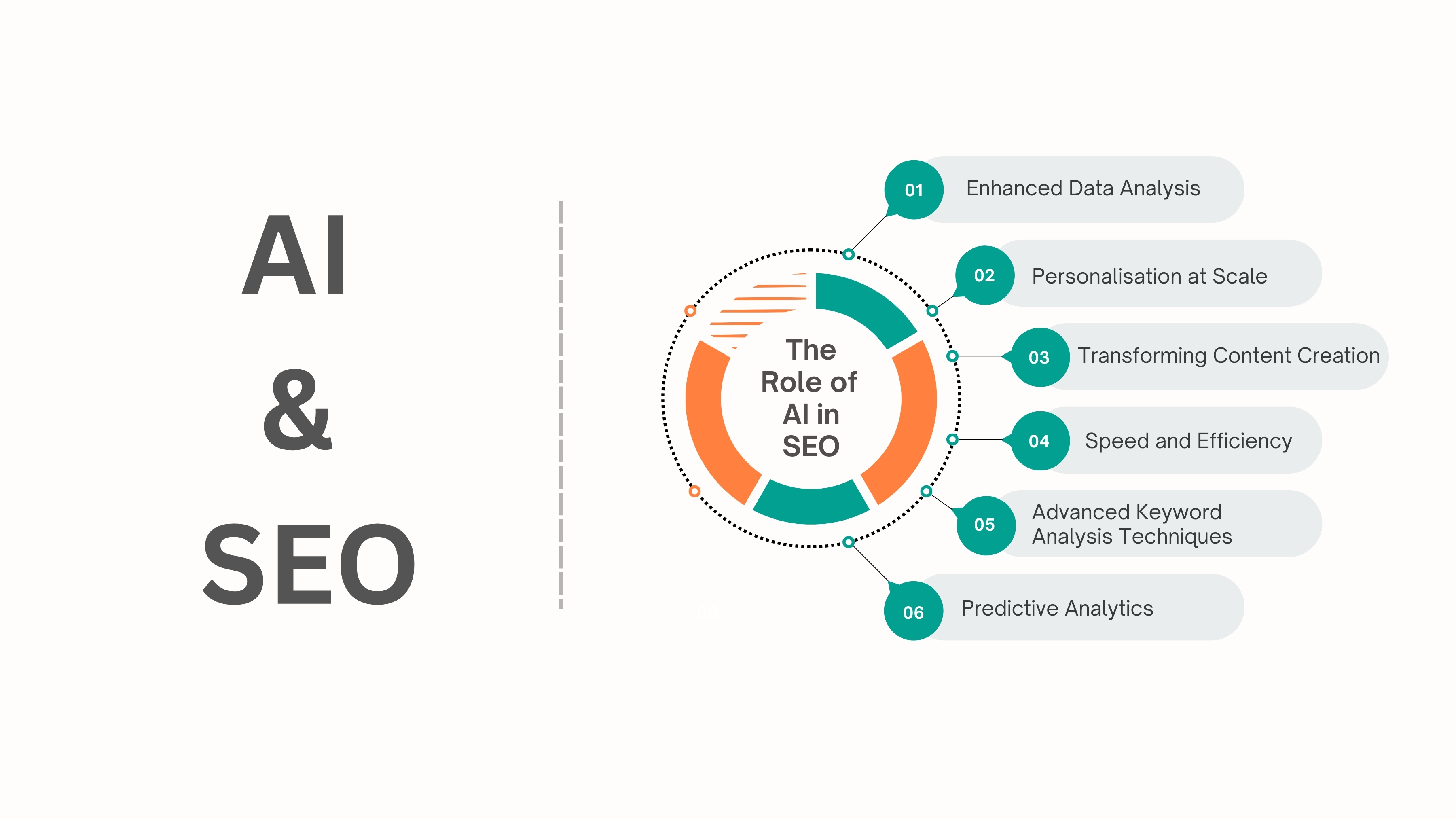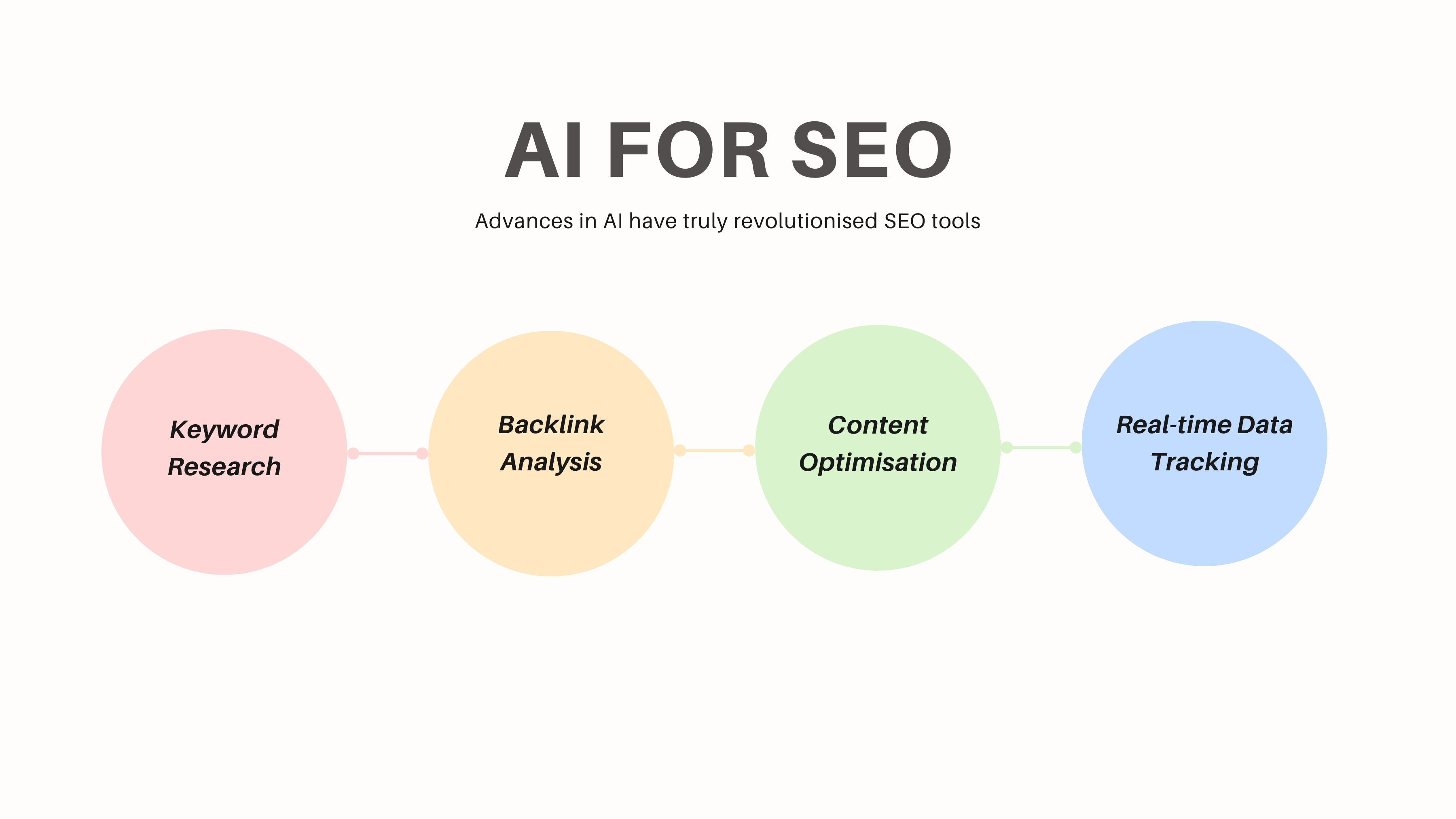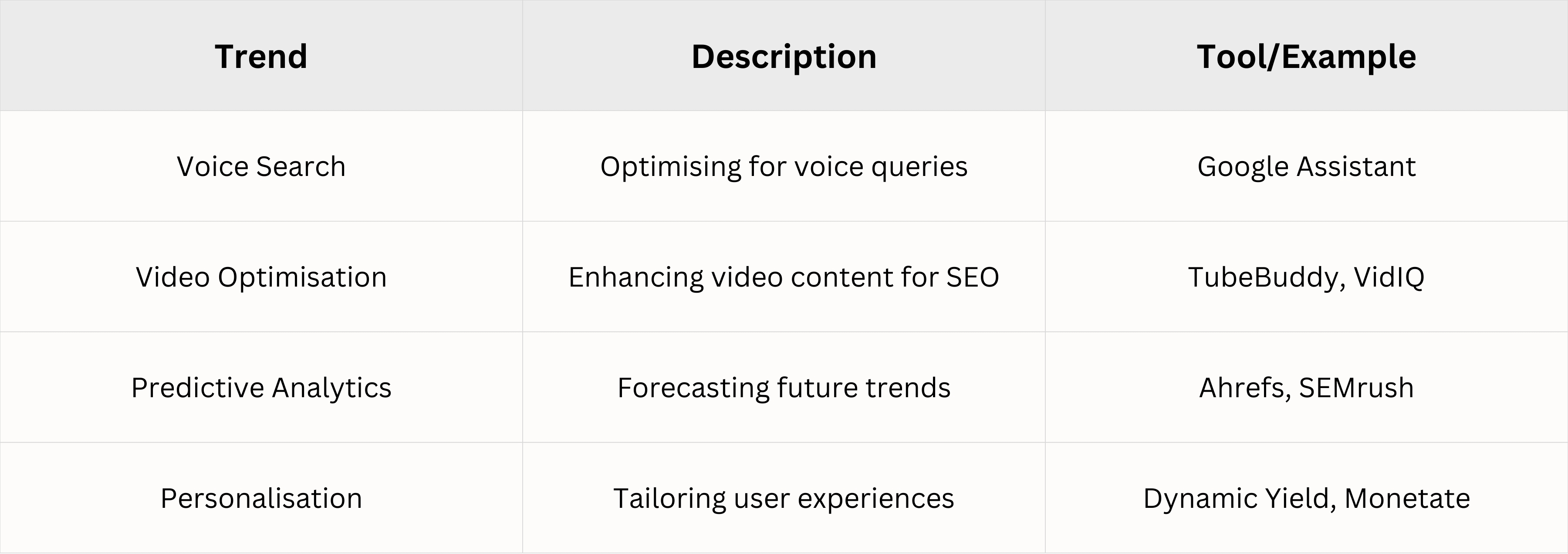Artificial intelligence (AI) has significantly changed SEO, making it more complex and interesting. AI helps marketers understand what users want and automates repetitive tasks, which improves online visibility. By examining how AI impacts SEO, you’ll discover how to enhance your content’s visibility and user engagement with the target audience you want.
AI impacts SEO by taking the hard work out of keyword research, content creation, and optimising pages to match what your users need. Marketers can use AI to make their job easier, personalise content to their target readers, and tap into much larger audiences on search engines, all while keeping up with changing algorithms.

AI Begins Reshaping SEO
SEO Advantage, a top SEO agency in Australia, explains that artificial intelligence has significantly impacted SEO. AI not only makes processes quicker but also helps marketers understand and predict how users behave. With better data analysis from platforms that handle large data sets much faster than people can, you can find out what customers are likely to do next.
AI Begins Reshaping Data Analysis
Imagine sorting millions of data points about search trends and interactions by hand, all by yourself. This would be overwhelming for anyone and easy to get wrong. Enter AI algorithms. These powerful tools analyse large amounts of data, spot the patterns you need to find, and feed the strategy marketers rely on to grow brands. One way machine learning models achieve this is by analysing historical data to predict which keywords are likely to be effective in the future.
A recent study indicated that businesses employing AI-driven SEO techniques could witness an increase in organic search traffic by up to 50% within mere six months. This staggering statistic highlights the advantage businesses gain by leveraging AI for data analysis.
Personalisation, But at Scale
The largest change in marketing over the next decade will be centred around one principle:
personalisation.
We all want to feel important – artificial intelligence helps marketers achieve this, but on a larger scale. Imagine you’re sitting at a restaurant. A good waiter will learn your favourite order; a great waiter will already know your order and have it ready for you. By examining how each user behaves and their preferences, artificial intelligence recommends content, pages, or websites that better match their interests.
According to reports, companies utilising AI for personalised marketing strategies often see a 30% increase in conversion rates – a compelling reason for any business considering investment in these technologies.
AI Begins Reshaping Content Creation
Tools like Jarvis have changed how we create written content. It uses natural language processing in the same way your brain does, but significantly quicker. Marketers can quickly produce high-quality, SEO-friendly material. You go from a blank page to a range of ideas in minutes. This saves time and lets human writers concentrate on planning instead of repetitive tasks.
Speed and Efficiency
AI tools are fast. They can create detailed blog posts or articles much quicker than a human writer, often maintaining high quality. These tools analyse popular topics and successful articles to understand what factors contribute to their high rankings. They don’t just copy; they actually learn from the best.
“AI tools are capable of producing articles up to five times faster than their human counterparts,” supports findings from the Content Marketing Institute.
Ways they can improve your efficiency include;
- Headline and Topic Suggestions: With a few keywords, AI can suggest engaging headlines and topic ideas.
- In-depth Article Drafting: AI can quickly outline and write entire articles, adjusting the tone and style to suit the needs.
- Automated Editing and Proofreading: AI tools simplify editing, ensuring final drafts are polished.
Enhanced Creativity
While AI can create impressive content, true creativity is something only human beings have (…for now). Experts in the industry say that AI-generated content requires human input to connect with human audiences, as machines don’t truly understand emotions or cultural context. Adding personal stories or anecdotes yourself helps shift content from general text into engaging stories that connect with the reader.
AI Begins Reshaping Keyword Analysis

To use AI for keyword analysis, focus on understanding what people search for and why. Instead of simply targeting high-volume keywords, predictive analytics and semantic keyword grouping allow for a deeper, more nuanced understanding of where your customers are on the internet, and when.
Predictive Analytics
Predictive analytics serves as a crystal ball for SEO, enabling marketers to forecast future trends by analysing historical data. It indicates which keywords may become popular and which ones may no longer be effective. For example, if searches for “eco-friendly products” are increasing, it’s a good chance to update the content strategy before competitors do.
Semantic Keyword Grouping
AI helps group similar keywords based on their context more accurately than the human eye can. Instead of focusing on specific phrases like “running shoes” or “best trainers for jogging,” AI targets broader categories, such as “footwear for fitness.” This approach makes content more relevant and better matches what your customers are searching for.
AI-Powered SEO Tools
AI has changed SEO tools for the better. Tools like SEMrush and Moz now use AI to help with keyword research, backlink analysis, content optimisation, and real-time data tracking, all in one place. These tools pay for themselves when your marketing tasks are now easier, and opportunities are found that marketers might ordinarily miss.
Automated Audits and Reports
AI audits automatically assess the health of a website, identify technical issues, and generate actionable reports. Imagine being handed a detailed report with insights you can immediately action, without needing to spend hours deciphering data – this is one of the most significant advantages of modern SEO tools. This reduces manual work and helps websites stay optimised as new content is added or as search trends change.
Not only do these tools suggest fixes tailored to optimise your website further, but they also generate performance reports that illustrate progress over time. This continuous engagement ensures that websites are not just optimised initially, but maintain their performance standards as the website is updated over time.
Optimising your SEO with these state-of-the-art tools is no longer a luxury; it has become a necessity for anyone serious about maximising their online presence.
Evolving Search Engine Algorithms
Search engines constantly improve how they work, focused on improving both the user experience and preventing manipulation. AI models like BERT and MUM enable Google to understand language more fluently by focusing on context and intent, rather than just keyword frequency.
“These updates aim to align search results more closely with real user needs instead of merely ranking pages based on keyword frequency.”
Now, old tactics like keyword stuffing no longer work. Today, high-quality content reigns supreme in a world expanding with low-quality content that is simply not engaging ot valuable for people online. High-quality content ranks, builds trust, and keeps those people on your website longer.
The August 2025 Spam Update is Google’s first update focused on spam this year; the search giant is once again signalling to marketers everywhere to optimise content and monitor rankings carefully.
AI Begins Reshaping Content Strategies
As we adapt to changes in search engine algorithms, SEO professionals must stay current and adjust their strategies accordingly. Your content should focus on user experience and satisfaction, rather than just pleasing search engine bots.
Engaging content is essential. Create articles that provide real value to your readers. For example, informative blog posts that answer common questions or provide helpful tutorials can boost user engagement and increase the time spent on your site. This approach improves your chances of ranking well in search results and builds trust with your audience.
Also, with Google’s August 2025 spam update rolling out, keep an eye on any ranking changes it may cause. Businesses should continuously optimise their online presence, not just during uncertain times.
By utilising techniques based on artificial intelligence and machine learning, marketers can more easily adapt to these changes. It’s also important to consider the broader implications of these technologies as we enter an era where technology and ethical considerations are increasingly intertwined.
Ethical Implications of AI in SEO
AI can help, but this technological leap has not come without its own ethical concerns. One primary concern is algorithmic bias. If AI algorithms are trained on historical data that reflects existing societal biases – be it racial, gender-based, or otherwise – the outcomes generated can reflect those very prejudices. This influence can lead to skewed search results that undermine fairness and objectivity.
It’s essential to recognise that the foundation of any AI-driven system relies not only on the sophistication of its architecture but also on the integrity of the data used for training. Flaws in that data will result in flawed outcomes.
Ignoring these can damage brand trust over time, while adopting ethical and transparent practices can foster stronger loyalty among consumers.
Transparency and Accountability in AI for SEO
Being transparent and accountable is vital when using AI tools for SEO. Practitioners should openly disclose their use of AI and clearly document their processes. This openness builds trust with users who rely on accurate search results. Explaining how AI affects content algorithms enables companies to take responsibility for the outcomes of their content.
Accountability means ensuring that AI-generated content is of high quality and relevant. Regularly checking AI systems is important to find and fix any biases or inaccuracies.
Ignoring these issues can damage a brand’s reputation and distance users who care about ethical practices. Committing to integrity in technology and content enhances a brand’s reputation in a competitive digital market and fosters user loyalty. Focusing on ethical practices helps create genuine connections with consumers who value strong brand ethics in a scrutinised market.
How SEO Will Change in Future: Our Hot Take
As AI continues to evolve, new trends in SEO are emerging, significantly influencing how content is created and optimised for visibility. One of the leading trends is Voice Search Optimisation.
Voice Search Optimisation
With more people using voice-activated assistants like Google Home and Alexa, it’s not just about traditional keyword targeting anymore; it’s about understanding the natural language that users employ when speaking. This shift means that marketers need to rethink their keyword strategies, focusing on conversational phrases and questions that align with user intent. As voice assistants become more popular, content needs to adapt to match natural conversation, such as using longer, question-based keywords. For example, instead of: “Colombian coffee brand“, a better keyword might be: “What is the best Colombian coffee brand for brewing espresso?”
Video Content Optimisation
Video is now essential for SEO because platforms like YouTube and TikTok are so popular. AI tools, such as TubeBuddy and VidIQ, help you optimise videos, track performance, and identify the next big content opportunity. As Google starts favouring pages that feature a mix of content (written text, subheadings, photography, video, links, etc.), video has become the fastest-growing preferred media format for users scanning the internet.

By adopting these tools, businesses can stay ahead of the trend – even trends that change as rapidly as SEO itself.